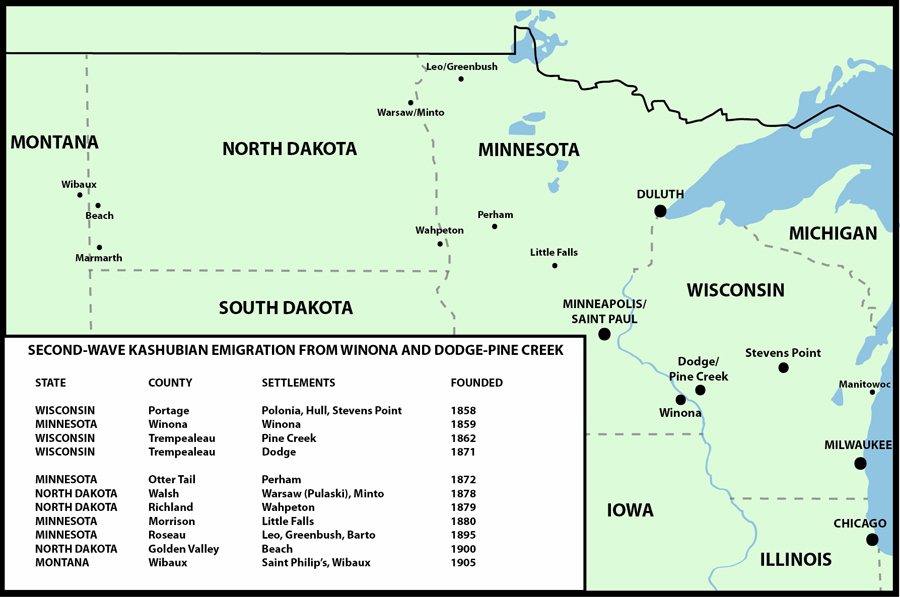
Winona's Kashubian immigrants often experienced trouble finding work due to language difficulties.There were not always enough jobs to occupy the hundreds of new arrivals who couldn't serve or sell to customers, or follow detailed instructions unless the employer also spoke Kashubian or Polish. The sawmills and the railroads needed men who could stand up to grueling physical labor, but that work was often seasonal. Women could take in washing or serve as domestics, which was not seasonal. All the way around, this was grueling labor, but Kashubians were no stranger to that. However, there were often more Kashubians in Winona than there were jobs for them. As the Wisconsin pine forests were cut down and the sawmills closed one by one (the last closed around 1900), work became even more scarce.
From nearly the beginning, many Winona Kashubians pushed out to start homesteads. As early as 1862, some Kashubians had relocated to the hamlet of Pine Creek in Trempealeau County, Wisconsin, where farmland was cheaper and more plentiful. Some moved to already established settlements like Perham and Little Falls, Minnesota. Others moved to entirely new settlements much farther north in Minnesota, like those in Roseau and St. Louis Counties. Others still moved to new settlements in Walsh County, North Dakota and Wibaux County, Montana. Despite the long distances, Kashubians in all of these towns have maintained their connections with Winona for generations now.